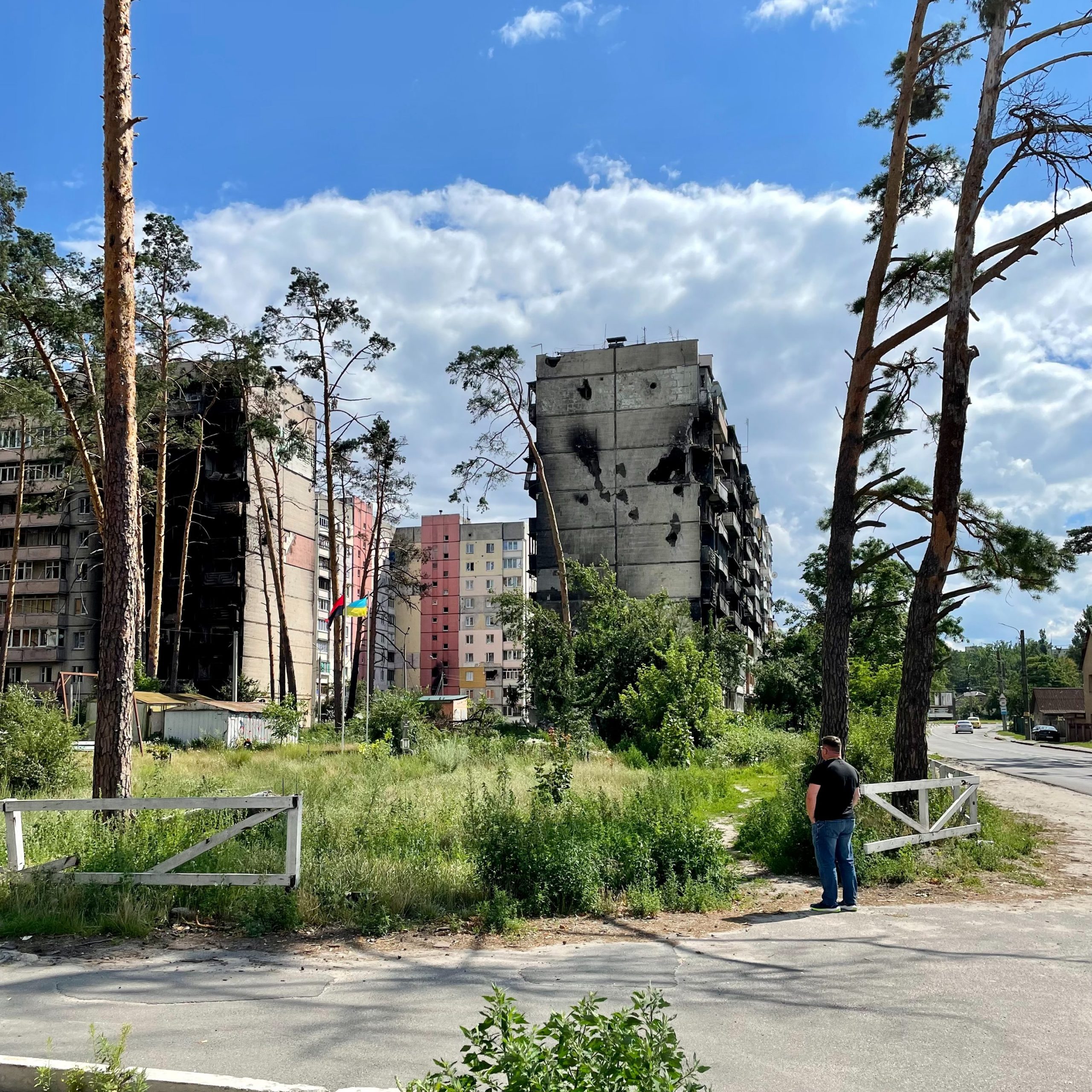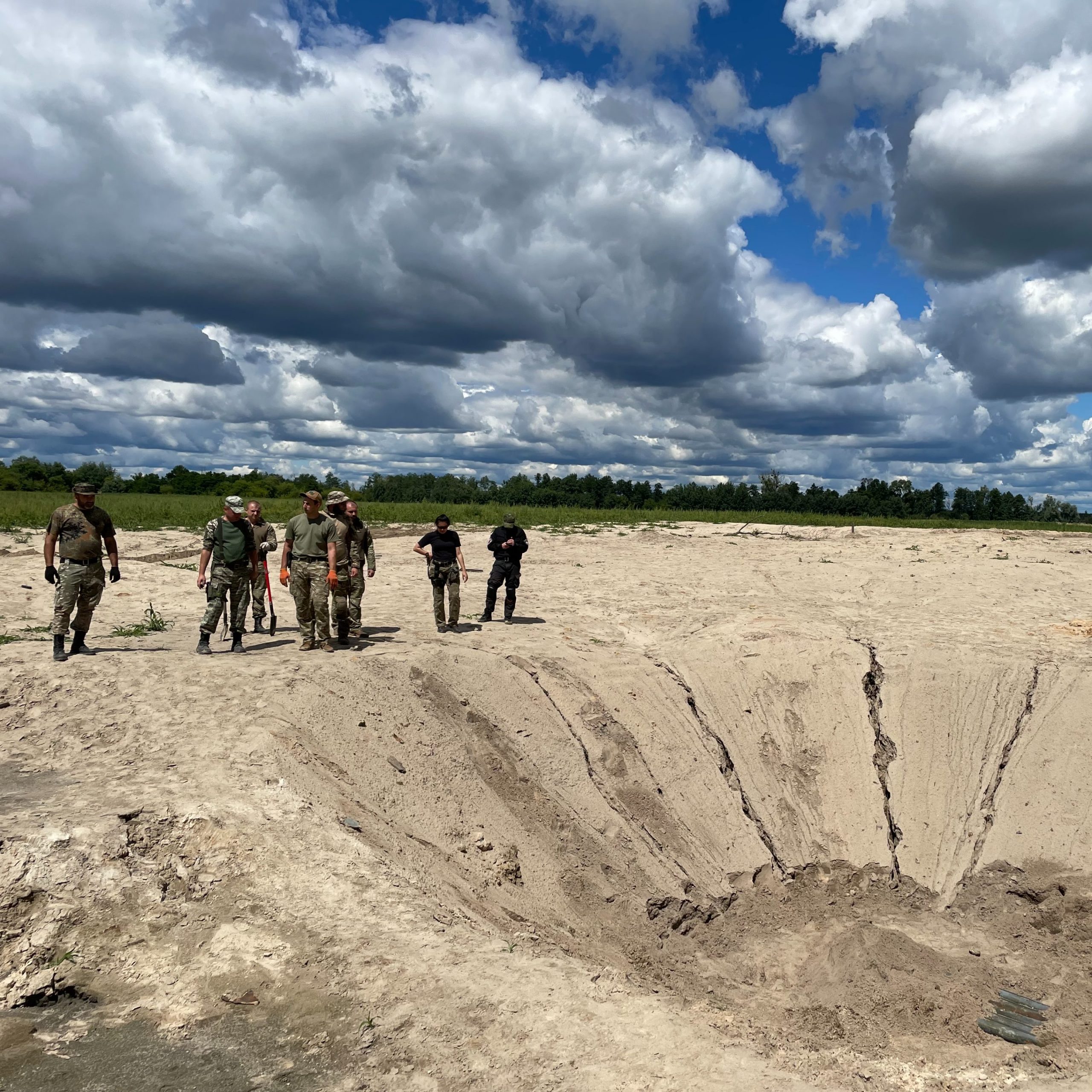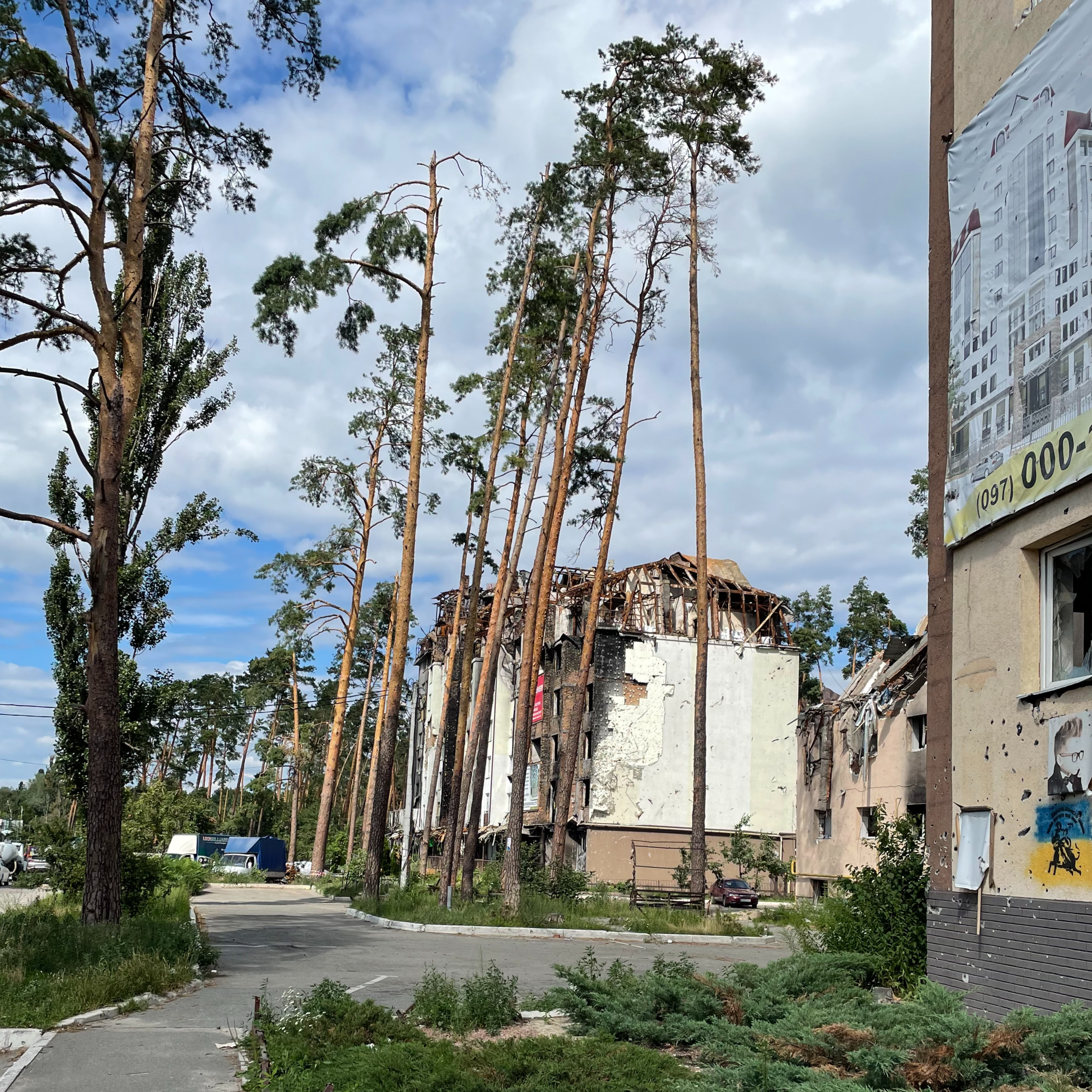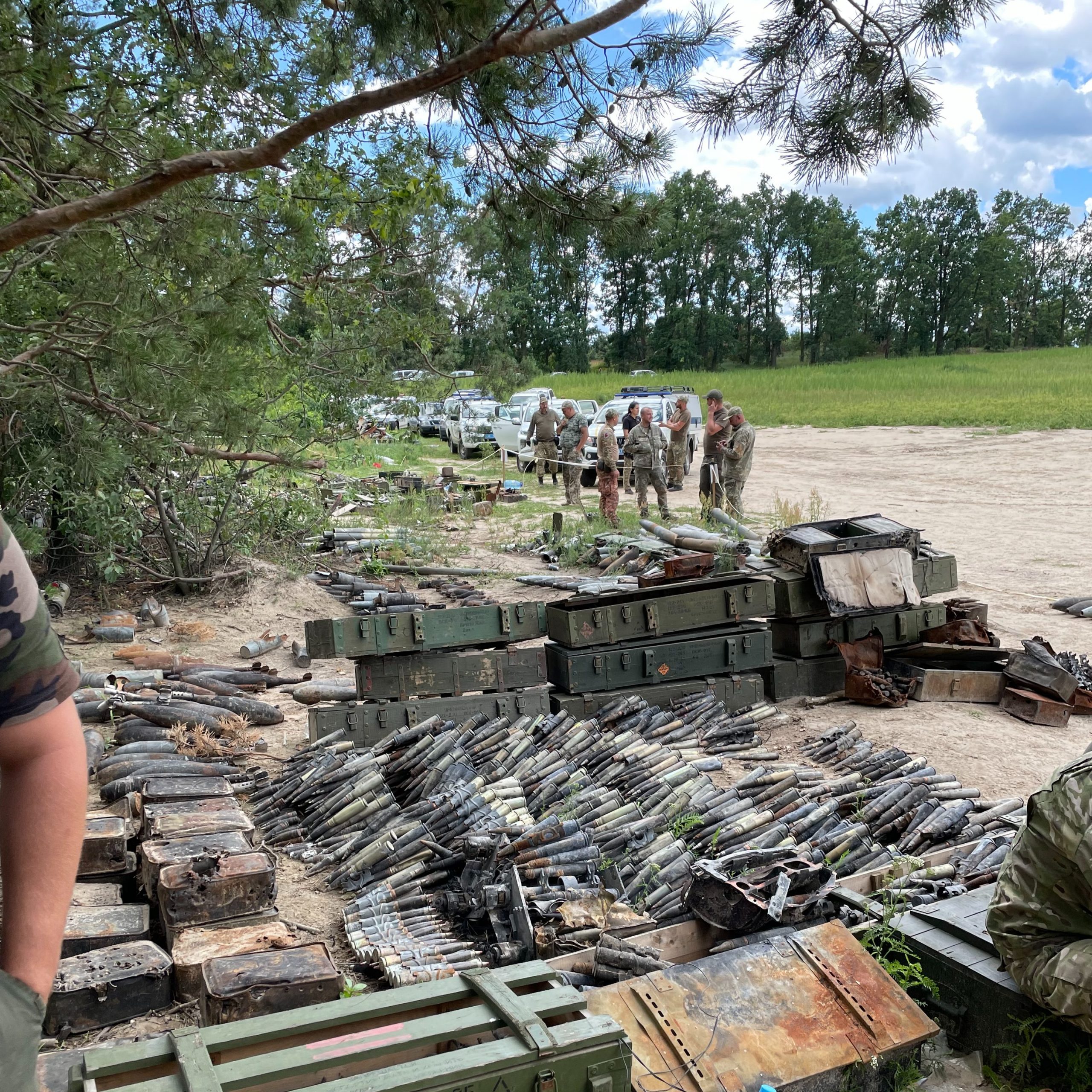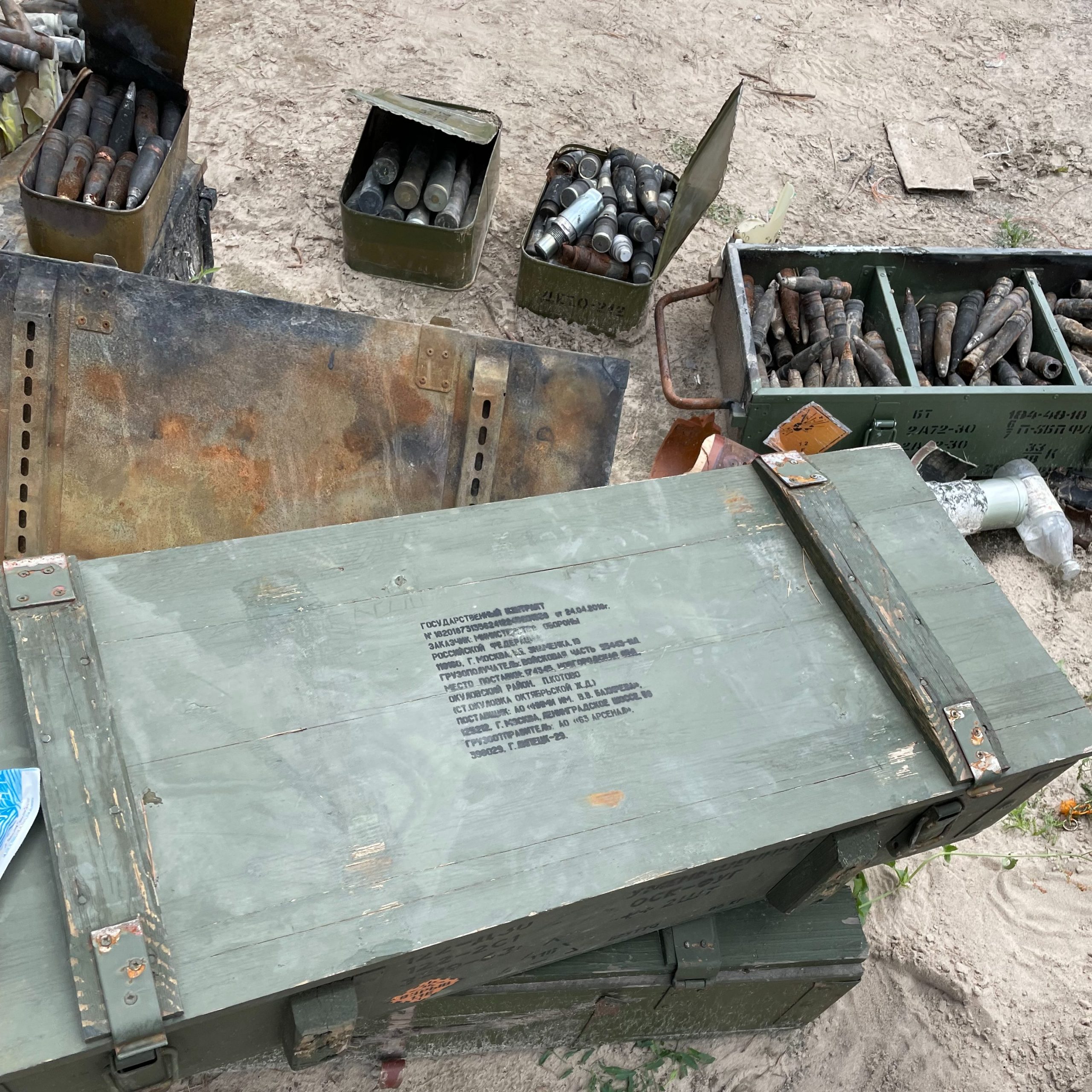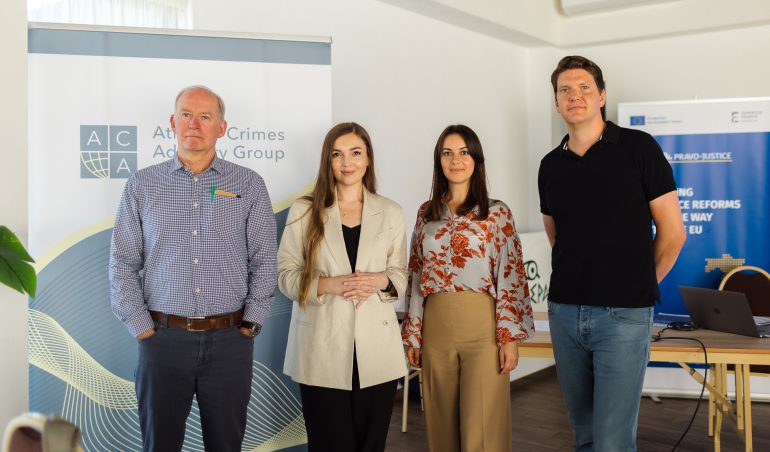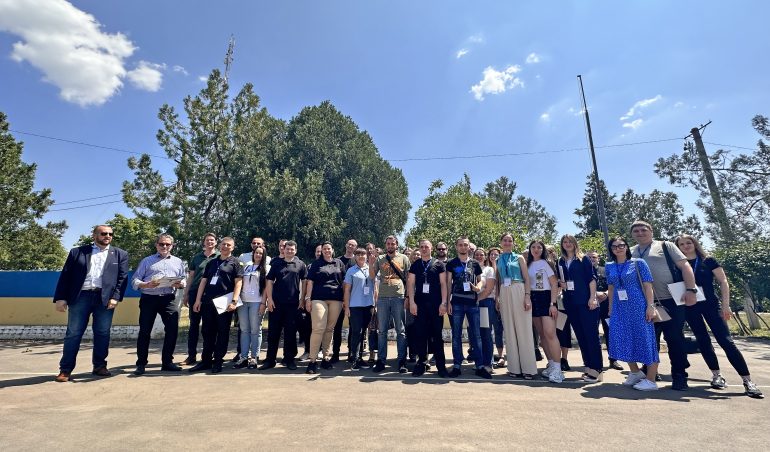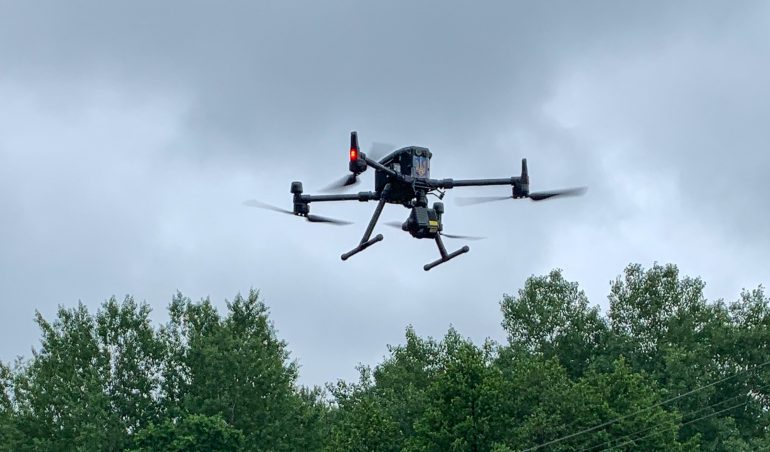Atrocities: EUAM Criminal Investigations Advisors visit Hostomel, Irpin, and Bucha with the Ukrainian Police
July 28, 2022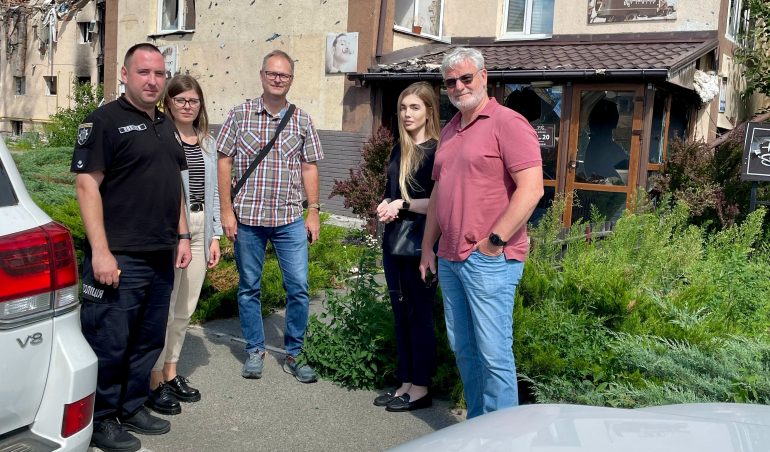
These were the first official joint visits by the EUAM International Crimes Task Force and the National Police of Ukraine (NPU) to the locations where International Crimes were committed.
In Kyiv oblast, the occupation of the towns of Hostomel, Irpin and Bucha by Russian forces lasted more than a month. The fighting continued until the area was liberated on 31 March. During the occupancy, more than 500 buildings were entirely or severely destroyed. However, the loss of civilian lives and the cruelty of the large-scale murders committed there is what strikes visitors of these quiet suburbs the most. Bringing justice to the victims and their families requires all criminal justice chain actors’ cooperation, dedication, and professionalism.
After a previous visit to Hostomel with the NPU Explosive Ordnance Disposal (EOD) Unit, the EU Advisory Mission (EUAM) Ukraine has now sent its International Crimes experts to Irpin and Bucha to join the NPU Forensic Unit. The objective of these visits is to review and assist the crime scene management techniques used to collect and preserve evidence to enable the investigation of International Crimes. During the visit, the EUAM team also discussed the future joint cooperation and the needs of its Ukrainian interlocutors.
On the ground, NPU officers explained the atrocities committed in the three cities, including the indiscriminate shelling of civilian buildings, war-related sex violence, the killing of civilians, mass murders, torture, interrogations and the misappropriation and looting of private properties.
Investigating crime scenes: a major task for NPU
The Ukrainian law enforcement agencies began working in the area immediately following the retreat of the Russian forces. During the visits, the NPU officers explained that the EOD experts always are the first to arrive at the crime scene. Once they have cleared the area, forensic officers and an investigatorinvestigators can gather evidence and perform their work, forming the basis for case files.
It is essential to preserve shreds of evidence on the spot, and time is crucial. To collect them in Hostomel, Irpin and Bucha, NPU worked tirelessly for about two months. “We understand the amount of work and the associated risks the NPU officers face every day,” noted Manfred Koenig, Senior Advisor on the Investigation of International Crimes. “We see they are doing a highly professional job under difficult circumstances, and we are glad to continue supporting NPU with strategic advice, highly needed equipment and specialised training.”
|
EUAM provides hands-on support to investigate war crimes In parallel to their visits, the EUAM International Crimes Task Force handed over four cameras with different lens types and flashes for forensic investigations to the NPU Forensic Department. Thanks to this private initiative by EUAM Senior Adviser on Forensic Identification Jolanda Van Der Weerd, the photo equipment will enable the police to better document and record evidence of International Crimes committed in Ukraine. Previously, EUAM also met with the NPU Inquiry Units. Their teams are often dispatched to the scenes of atrocities due to the significant police investigators’ work overload since the war began. The inquirers received 11 forensic kits and 12,500 forensic envelopes for the same purpose. |


